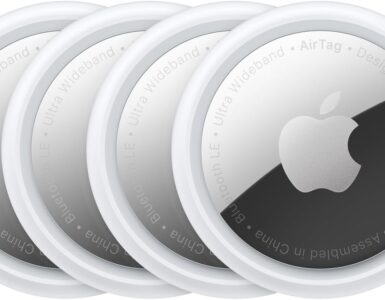If you’re considering a pedometer or step counter to monitor your daily activity, this guide will help you understand how these devices work, their accuracy, and whether you should invest in one.
Affiliate disclosure: This post contains affiliate links. If you click a link and make a purchase, we may earn a commission.
How Do Step Counters Work?
Step counters detect your movement using either mechanical switches (in older models) or, more commonly now, internal accelerometers that track motion in three directions. They use algorithms to filter out non-walking movement and estimate the number of steps taken based on repeated rhythmic motion. Some advanced models also incorporate GPS and gyroscopes to improve accuracy, especially during running or outdoor activities.
Are Step Counters Accurate?
Modern pedometers and fitness trackers are generally accurate within a 5–10% margin of error. Accuracy depends on factors like where the device is worn, the user’s stride length, and walking style. Devices worn on the wrist tend to pick up arm movement and may overestimate steps, while clip-on pedometers near the waist are typically more accurate for walking detection.
Can You Get a Step Counter on Your Phone?
Absolutely. Most modern smartphones come with built-in accelerometers and health apps (like Apple Health, Google Fit, or Samsung Health) that track steps passively. These are convenient and free, but keep in mind that you need to carry your phone with you all day, and results can vary depending on phone placement and motion sensitivity.
Should You Buy a Step Counter?
If you’re serious about tracking daily activity, a dedicated pedometer or fitness tracker is worth the investment. They’re more consistent than phone-based apps and often come with extra features like heart rate tracking, sleep monitoring, and reminders to move. Simple models suit those who just want step counts, while advanced fitness trackers appeal to users focused on health and performance metrics.
Top 5 Step Counters to Buy on Amazon
Here’s a comparison of the top-rated and best-selling pedometers and fitness trackers available on Amazon, each reviewed for features, pros and cons, and suitability.
1. Fitbit Charge 5 – Advanced Health & Fitness Tracker
- Optimize your workout routine with a Daily Readiness Score that reveals if you’re ready to exercise or should focus on recovery (Requires Fitbit Premium membership). Compatibility-Apple iOS 15 or higher, Android OS 9 or higher.
- Get a daily Stress Management Score showing your body’s response to stress and take steps to improve your levels with an on-wrist EDA sensor mindfulness session. Track your heart health with high & low heart rate notifications and a compatible ECG app (The Fitbit ECG app is available in select countries. Not intended for use by people under 22 years old.)
- With the Health Metrics dashboard, track SpO2, heart rate variability, skin temperature variation and more (Not intended to diagnose or treat any medical condition and should not be relied on for any medical purposes.) See your real-time pace & distance without your phone using built-in GPS during outdoor activity, then see a map of your workout route in the Fitbit app
- Your stats come to life on a new color touchscreen that’s two times brighter than Charge 4 in daylight, all with up to 7-day battery (varies with use and other factors)
- Track calorie burn and optimize workouts with 24/7 heart rate tracking and Active Zone Minutes, which guide you toward your desired intensity level
2. Garmin Vivosmart 5 – Fitness Tracker with Health Monitoring
- Easy-to-use, comfortable smart fitness tracker, once setup through the Garmin Connect app, has a touchscreen and button interface plus a brighter, bigger display than vívosmart 4 for larger text.Supported Application:Heart Rate Monitor,Sleep Monitor,GPS,Fitness Tracker,Contacts,Messages,Calendar. Connectivity technology:Bluetooth.
- Get an uninterrupted picture of your health with up to 7 days of battery life in smartwatch mode; safe for swimming and showering, too
- Understand your body by monitoring your respiration, Pulse Ox (Pulse Ox not available in all countries; it is not a medical device), Body Battery energy levels, women’s health, hydration, stress and heart rate (This device is intended to give an estimate of your activity and metrics) with low and high heart rate alerts once set up through the Garmin Connect app
- Get a score for your sleep quality, plus get further insights on how to improve your sleep via the Garmin Connect app
- Reach your fitness goals through fitness age, step tracking, calories burned, intensity minutes and more
3. Xiaomi Smart Band 9 Pro – Budget-Friendly Fitness Tracker
- 1.74″ narrow-edge quadrilateral display with 2.5D cover glass
- Aluminum alloy frame in 3 colours, to match a vibrant style
- Up to 21 days of battery life, 5ATM water resistance
- Upgraded all-round sleep monitoring, Improved bloodoxygen and heartrate monitoring
- Supports 150+ sportsmodes, built-in GNSS and compass, Independent GNSS ,five-satellite positionin, Supports five major satellite systems (GPS, GLONASS, BeiDou, Galileo, QZSS), with a 33% increase in positioning accuracy
4. 3DFitBud Simple Step Counter – No Setup Required
- Effortless to operate — just clip on and start walking
- Provides reliable and precise step counting every time
- Clear, large numbers for quick and easy viewing
- Compact design that’s easy to carry anywhere
- Energy-efficient with extended battery performance
5. Omron HJ325 Alvita Ultimate Pedometer – Reliable Tri-Axis Tracker
- Tracks steps, aerobic steps (i.e. healthy steps), distance walked and calories burned. The different measurements can be viewed by following these steps, Press the Mode button to select the type of measurement you want to see (steps, distance, calories burned, etc.). Then press the MEM button to view the results (days 1-7) in memory. The display will change with each press of the MEM button
- Keeps an accurate step count in almost any position–flat, vertical or horizontal
- Auto Stride Function instantly calculates stride length based on height and weight input
- Displays 7 days of activity on display
- Weighs less than 1 ounce allowing it to be clipped on almost anywhere
Pedometer Comparison Chart
| Product | Price | Battery Life | Style | Heart Rate | Bluetooth | GPS | Best For |
|---|---|---|---|---|---|---|---|
| Fitbit Charge 5 | ~$69.95 | Up to 7 days | Wrist-worn | ✅ | ✅ | ✅ (built-in) | Wellness & fitness enthusiasts |
| Garmin Vivosmart 5 | ~$149.99 | Up to 7 days | Wrist-worn | ✅ | ✅ | ❌ (uses phone) | Health-focused users & sleep tracking |
| Xiaomi Smart Band 7 Pro | ~$59.99 | Up to 12 days | Wrist-worn | ✅ | ✅ | ✅ (built-in) | Budget-friendly fitness tracking |
| 3DFitBud Simple Step Counter | ~$24.99 | Up to 12 months | Clip-on / Lanyard | ❌ | ❌ | ❌ | Seniors & tech-averse users |
| Omron HJ325 Alvita | ~$23.27 | Up to 6 months | Clip-on | ❌ | ❌ | ❌ | Reliable offline step tracking |
Final Thoughts
Whether you want a full-fledged health tracker like the Fitbit Charge 5, a budget GPS device like the Xiaomi Smart Band 7 Pro, or a simple no-setup pedometer like the 3DFitBud, there’s a step counter for every lifestyle. Consider how deeply you want to dive into fitness metrics and whether features like GPS, app syncing, or heart rate monitoring matter to you.








